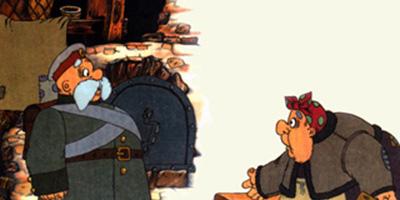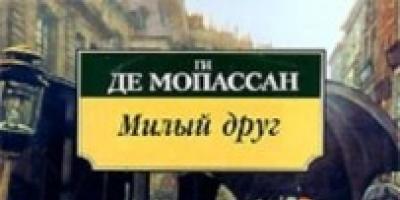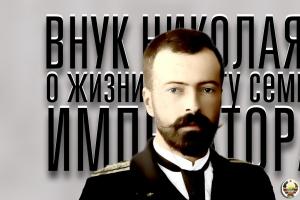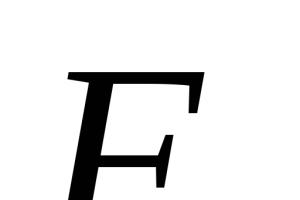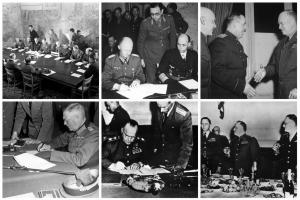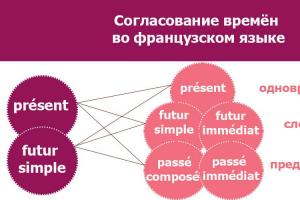How was your summer? A selection of the most common words on the topic of holidays and travel, as well as phrases and example sentences for talking about holidays in German.
| der Urlaub,-e | vacation, holidays | reisen | travel |
| die Ferien | holidays (at school, university) | fliegen | fly |
| die Sommerferien | summer holidays | wandern | go camping |
| die Winterferien | the winter vacation | baden | bathe |
| die Weihnachtsferien | Christmas Holidays | besuchen | visit, pay a visit |
| die Osterferien | Easter holidays | besichtigen | visit, explore (e.g. a museum) |
| der Ferienjob, -s | work on vacation | buchen | to book |
| das Wochenende | weekend | bezalen | pay |
| berufstätig sein | to work, to be employed | verbringen | spend time) |
| in den Urlaub fahren | go on vacation | zelten | live in a tent |
| zu Hause bleiben | To stay home | dauern | last |
Examples:
Schüler haben immer viele Ferien.— Schoolchildren always have a lot of holidays.
Ich bin Studentin und ich habe jetzt Sommerferien.— I’m a student and I’m on summer vacation now.
In den Winterferien be suche ich meine Eltern.— During the winter holidays I visit my parents.
In den Weihnachtsferien bleiben wir zu Hause.— We are at home during the Christmas holidays.
In den Semesterferien gehe ich arbeiten, um Geld zu verdienen.— During the semester holidays I work to earn money.
Der nächste Montag ist ein Feiertag. Daher haben wir ein langes Wochenende.— Next Monday is a holiday. So we'll have a long weekend.
Ich bin berufstätig und habe 28 Tage Urlaub im Jahr.— I work and have 28 vacation days a year.
Im Sommer habe ich zwei Wochen Urlaub.— In the summer I have two weeks of vacation.
Ich fliege mit meiner Familie in Urlaub.— I'm flying with my family on vacation.
In den Osterferien mache ich eine Reise nach Frankreich.— During the Easter holidays I will travel to France.
Wir fahren für drei Wochen nach Italien.— We are going to Italy for three weeks.
Ich möchte einmal mit einem Kreuzfahrtschiff reisen. — I would like to travel on a cruise ship.
Die Busfahrt hat sehr lange gedauert.— The bus ride lasted a very long time.
Am Wochenende möchte ich einen Ausflug zum See machen.— We'll go to the lake this weekend.
Magst du zelten?— Do you like living in a tent?
Sie haben eine Ferienwohnung in den Bergen gemietet.— They rented an apartment in the mountains.
Ich war zwei Wochen in Kroatien. Das Wetter war sehr gut.— I was in Croatia for two weeks. The weather was very good.
Leider was das Wasser ziemlich kühl.— Unfortunately, the water was very cool.
Dieses Jahr bin ich zu Hause geblieben. Aber nächstes Jahr möchte ich nach Marokko reisen.— This year I was at home. Next year I want to go to Morocco.
Ich habe meine Ferien bei meinen Großeltern verbracht.— I spent the holidays with my grandparents.
Unsere Kinder haben zwei Wochen in einem Ferienlager verbracht.— Our children spent two weeks at summer camp.
Place and direction
| Where? (Wo?) | Where? (Wohin?) | ||
| am Bahnhof/im Bahnhof (im Gebäude) | zum Bahnhof/in den Bahnhof (Gebäude) | (railway station) | |
| am Flughafen/im Flughafen (im Gebäude) | zum Flughafen | (airport) | |
| am Meer | ans Meer | (sea) | |
| an der Ostsee | an die Ostsee | (Baltic Sea) | |
| am See | an den See / zum See | (lake) | |
| am Strand | an den Strand / zum Strand | (beach) | |
| auf dem Campingplatz | zum Campingplatz | (camping) | |
| auf dem Land | aufs Land | (countryside) | |
| im Ausland | ins Ausland | (abroad) | |
| im Gebirge | ins Gebirge | (mountain range) | |
| in den Bergen | in die Berge | (mountains) | |
| auf der Insel | auf die Insel | (island) | |
| im Norden/Süden | in den Norden/Süden | (North South) | |
| in der Stadt | in die Stadt | (city) | |
| im Hotel | ins Hotel | (hotel) |
Examples:
Wie lange warst du am Mittelmeer?— How long have you been in the Mediterranean?
Um 15 Uhr fahre ich zum Flughafen.— At 15 o’clock I leave for the airport.
Wir wohnen in der Stadt, deshalb machen wir gern Urlaub auf dem Land.— We live in the city, so we willingly spend our holidays in the countryside.
Im Sommer reisen wir meistens ans Meer.— In the summer we most often go to the sea.
Nächstes Jahr wollen wir auf der Insel Rügen Urlaub machen.— Next year we want to go on holiday to the island of Rügen.
Ich werde am Bahnhof auf dich warten.- I'll wait for you at the station.
Letzten Winter bin ich mit Freunden in die Berge gereist. Der Urlaub war toll.— Last winter I went to the mountains with friends. The vacation was wonderful.
Winterurlaub im Gebirge macht mir am besten Spaß.— Winter holidays in the mountains give me the most pleasure.
Es ist noch zwei Stunden bis zum nächsten Campingplatz.— Two more hours until the next campsite.
"How I spent my summer" in German. How to write an essay, what words you might need, and what basic rules you should keep in mind! The three summer months have come to an end, many of us are returning to school/institute/courses (underline as appropriate). In the meantime, we have prepared an article for you designed to simplify your life at first.
Today we will talk about how you could spend the summer and review vocabulary on this topic.
5 main features to remember!
1. First of all, the Germans call this period der Sommer(summer) or die Sommerferien(summer holidays).
2. Since we are writing about something that has already happened, we will use the past tense ( Präteritum) or past perfect ( Perfect). Präteritum, and this is the second form of the verb, is correct in writing and emphasizes the descriptive nature. Perfect it is used more in colloquial speech, and in writing it conveys the flavor of a story or conversation.
3. There's also an important grammatical feature to keep in mind: tense conjunctions. wenn And als - "When". Wenn tells us about the “when” that happens regularly, several times, every time. Als it tells about a one-time event in the past.
4. The essay format involves writing a related text, expressing opinions and wishes, as well as a touch of sincerity, so when starting to write, stock up on a set of cliché expressions and introductory words, a la " Ich hoffe, dass...", "Ich denke...", "Hoffentlich", etc. A selection of such expressions can be found, for example, .
5.
It is also necessary to remember the grammatical differences between the questions " Where?" And " Where?."
"Where?" -WO?- requires strictly Dativ after itself, and "Where?" - WOHIN?- supplemented in Akkusativ.

Having discussed the main points of writing an essay, let's move on to the necessary vocabulary.
The most basic
der Sommer- summer
die Sommerferien(Pl.) - summer holidays
der Urlaub- vacation
die Reise- drive
im Sommer- in summer
When can you go on holiday/vacation:
im Sommer / Herbst / Winter / Frühling- summer, autumn, winter, springin den Ferien- on vacation
am Wochenende- on the weekend
letzten Sommer / Monat- last summer / last month
letzte Woche- last week
letztes Jahr- last year
im letzten Urlaub- on last vacation
in den Letzten Ferien- last holidays
vor einem Monat- a month ago
vor einer Woche- a week ago
How long can you be on vacation/trip/vacation:
einen Tag- one daydrei Tage- three days
einen Monat- one month
zwei Monate- two month
eine Woche- a week
drei Wochen- within three weeks
IMPORTANT! Time intervals require Akkusativ.
Where can you holiday/stay ( Wo = Dativ):
Ich machte Urlaub…- I was on vacation …Ich war...in Urlaub.- I was on vacation
in der Stadt- in the city
auf dem Land- in the village
in den Bergen- in the mountains
am See- on the lake
am Meer- on the sea
im Ausland- Abroad
im Ferienlager/Trainingslager- at a summer/sports camp
auf dem Campingplatz- at the campsite
in der Jugendherberge- in a student hostel
im Hotel- In a hotel
Where can you go on vacation? Wohin = Akkusativ):
Ich bin nach / in… gefahren- I went to...Ich fuhr / flog / reiste nach… / in…- I drove, flew, traveled to...
in die Stadt- in town
aufs Land- to the village
in die Berge- into the mountains
zum See- to the lake
an das Meer- on the sea
ins Ausland- abroad
in das Ferienlager / Trainingslager- to summer/sports camp
auf den Campingplatz- to the campsite
in die Jugendherberge- to a student hostel
ins Hotel- to the hotel
What you can ride/ride:
mit dem Auto- by carmit dem Zug- by train
mit dem Flugzeug- by plane
mit dem Schiff- on the ship
zu Fuß- on foot
IMPORTANT: With transport (to ride something) the construction is always used mit+Dativ
Common verbs of motion and their three forms:
fahren - fuhr - (ist) gefahren- to go / ridefliegen - flog - (ist) geflogen- fly/fly
gehen - ging - (ist) gegangen- walk/go
We have also prepared visual materials for you to make writing an essay and talking about summer even easier!
How to tell a friend from Germany about your summer vacation? We have prepared an example story and a sample letter in German with translation.
The story of how I spent my summer
Den Sommer habe ich in meinem Heimatstadt Worms verbracht. Im Internet habe ich eine junge Frau kennen gelernt. Wir haben uns fast jeden Tag unterhaltet und ich habe sie zum Besuch eingeladen. Jeden Tag sind wir spazieren gegangen. Ich habe ihr die schöne Stadt in die ich lebe gezeigt. Hier gibt es viel zu sehen.
Worms ist die älteste Stadt in Deutschland. Es ist eine Stadt der republikanischen Unterordnung auf dem linken Ufer des Oberrheins, im Bundesland Rheinland-Pfalz mit etwa 85.000 Einwohnern. Worms hat ein Ruf als die wärmste und trockenste Stadt Deutschlands. Schon am Anfang Mai blühen in Wormser Parken bereits die Rosen. Wir haben den ältesten Judenfriedhof Europas besucht. Touristen von ganzer Welt kommen nach Worms um Jüdische Friedhof zu besuchen. Das älteste Grab stammt von 1076 Jahr.
Wir waren in die Nikolauskapelle, bei Wormser Dom. Das ist schöne Gebäude, die in gotischen Stil gebaut ist. In diese Kapelle werden auch die Kinder getauft.
Wir waren auch in dem Tiergarten. Dort haben wir die Affen beobachtet. Sie sind so lustig. In unserem Tiergarten kann man auch die exotische Tiere sehen, Z.B Leguane. Durch den Tiergarten kann man mit einem kleinen Zug fahren. Die Kinder haben davon sehr viel Spaß. Wir sind dort spazieren gegangen und haben die Tiere gefüttert. Danach haben wir in die gemütliche Cafe Eis gegessen. Manche Leute machen dort Picknick mit der ganzen Familie.
Im Zentrum von Stadt kann man Lutherdenkmal sehen. Das Denkmal ist im Jahr 1868 geschaffen wurde. Die zahlreiche Gäste Fotografiren sich oft neben diesen Denkmal.
Nicht weit vom Festplatz liegt Rheinpromenade, wo man sehr schöne Spaziergänge machen kann. Wir sind am Rhein entlang gegangen und in die Kastanienallee gelangen. Wir haben dort die Fahrkarten gekauft und haben Schiffstour auf dem Rhein gemacht. Es war sehr schön.
Am Ende August wird jährlich am Festplatz das Wormser Backfischfest gefeiert. Überall spielt laute Musik, riecht nach Süßwaren und deftiger Mahlzeiten. Jedes Jahr werden dort unterschiedliche Attraktionen aufgebaut. Zum Abschluss des Festes beginnt das große Feuerwerk, es sollte man sich nicht entgehen lassen.
Es gibt unendlich viel in Worms zu sehen. Straßen von Worms tragen die Namen der Helden von "Das Nibelungenlied" - Siegfriedstraße, Hagenstraße. Übrigens es wird vermutet, dass es immer noch nicht gefundene Schätze der Nibelungen in Worms sind, und in vielen Kellern von alten Häusern kann man die Schilder finden - “schon gegraben”.
Sehr beliebt ist das Cafe "Otto Schall" auf Wilhelm-Leuschner-Stase. Wir haben beschlossen hin zugehen und dort essen. Dort fanden wir eine große Anzahl von Menschen, die gleichen Ziele hatten. Wir bestellten Strudel mit Waldbeeren. Es war sehr lecker.
Am Ende ihres Besuches hat meine Freundin beschlossen, einen kleinen Einkaufsbummel zu machen. Wir gingen zu einem großen Einkaufszentrum in der Innenstadt. Einkaufszentrum passt nicht ganz in die umliegenden Gebäude mit seinem modernen Aussehen. Im Inneren des Gebäudes gibt es ganz viel verschiedene Geschäfte, wo man Kleidung, Schuhe, Parfums, Sportartikel kaufen kann. Es gibt auch mehrere Cafés, wo man sich während Einkaufen ausruhen kann.
Wir hatten eine sehr gute Zeit zusammen verbracht. Wir sind noch ins Geschäft gegangen, wo wir die Postkarten von Worms und seine Sehenswürdigkeiten gekauft haben. Im Gegensatz zu anderen Orten, wo die Preise für solche Karten bis zu 1 Euro liegen, gibt es hier gute Exemplare als Geschenk für nur 0.40 €. Meine Freundin war sehr zufrieden mit unserem Spaziergang und versprach mir im nächsten Sommer wieder zu kommen. Wir haben uns entschieden andere Städte zu besuchen.
Translation
I spent the summer in my hometown of Worms. I met a girl on the Internet. We talked almost every day, and I invited her to visit. Every day we went for a walk. I showed her the beautiful city where I live.
Worms is the oldest city in Germany. It is a city of republican jurisdiction on the left bank of the Upper Rhine, in Rhineland-Palatinate, with approximately 85,000 inhabitants. Worms has a reputation as the warmest and driest city in Germany. Already at the beginning of May, roses bloom in Worms parks. We visited the oldest Jewish cemetery in Europe. Tourists from all over the world come to Worms to visit the Jewish cemetery. The oldest grave dates back to 1076.
We were in the chapel of St. Nicholas the Wonderworker in the Cathedral of Worms. This is a beautiful building that was built in the Gothic style. Children are also baptized in this chapel. We also went to the local zoo. There we watched the monkeys. They are very funny. In our zoo you can also see exotic animals such as iguanas.
You can take a ride around the zoo on a small train. Children find it a lot of fun. We walked there and fed the animals. Then we ate ice cream in a cozy cafe. Some people have a family picnic at the zoo. In the center of the city there is a monument to Luther. It was created in 1868. Numerous guests of the city often take photographs next to it.
Not far from the festive square there is the Rhine embankment, where you can take walks. We walked along the Rhine and reached the chestnut alley. There we purchased tickets and took a boat ride on the Rhine. It was wonderful.
Buckfishfest is celebrated annually at the end of August. Loud music plays everywhere, the smells of sweets and hearty dishes waft. Every year various attractions are installed there. At the end of the holiday there is a big fireworks display. This is not worth missing.
There is a lot to see in Worms. The streets of the city bear the names of the heroes of the “Song of the Nibelungs” - Siegfried Street, Hagen Street. By the way, it is believed that treasures that have not yet been found are in Worms, and in many basements of old buildings you can see inscriptions - “already excavated.”
The Otto Schall café on Wilhelm-Leuschner-Stasse is very popular. We decided to go there and have something to eat. There we saw a large number of people who went there for the same purpose as us. We ordered wild berry strudel. It was very tasty.
At the end of her visit, my friend decided to go shopping. We went to a large shopping center in the city center. The shopping center, with its modern appearance, does not quite fit into the surrounding buildings.
Inside the building there are many shops where you can buy clothes, shoes, perfumes, and sporting goods. There are also several cafes where you can relax while shopping.
We had a great time together. We went to a store where we bought postcards with a view of Worms and its attractions. Unlike other places where prices for such cards are up to 1 euro, here there are good copies that can be bought as a gift for only 0.40 €. My friend was very pleased with our walk and promised to come next summer too. We decided to also visit other cities.
Letter to a friend (sample)
Hallo mein lieber Freund! (You can put his name in the place “Dear friend”, at your discretion) Wie geht es dir? Wie Sie Ihren Sommerurlaub verbringen?Ich bin jetzt auf dem Meer hier ist sehr interessant, viele Touristen, da es sehr Wasserpark. Ich mag sind gehen Schwimmen und Sonnenbaden .. Und du bist auf dem Meer ruht in diesem Sommer?Beste Grüße an deine Eltern!Ihr bester Freund!
Translation
Hello my dear friend! How are you? How do you spend your summer vacation? I am now at the sea here, it is very beautiful, there are a lot of tourists, because there is a water park. I like swimming and sunbathing.. And are you relaxing at the seaside this summer? Best wishes to your parents! My best friend!
Hallo lieber Freund,
und wir rauchten Gras. Nach dem Kiefen hatten wir immer lange Sex und erst gegen 3 Uhr ging sie nach Hause. So waren erste 3 weeks. Dann waren endlich die Eltern im Urlaub und wir sind nach Spanien geflogen. Da war richtig warm. Ich lag täglich am Strand und habe nix gemacht.
Das war cool. What's wrong? Nach 2 Wochen waren wir zurück und ich musste zu den Großeltern. Die Eltern wollten bisschen ohne mich sein. So war ich noch bis vor kurzem auf der Datscha und vergammelte dort.
Wie war bei dir? Melde dich bitte!
Hello friends! Summer has passed, and it’s time to start writing an essay on how I spent my summer.
An excellent topic with translation and the necessary dictionary on this topic.
At the end of the topic, watch the video meine sommerferien rotine.
The necessary vocabulary:
der Sommer - summer
die Sommerferien (Pl.) – summer holidays
der Urlaub – vacation
die Reise - trip
im Sommer - in summer
im Sommer / Herbst / Winter / Fruhling – summer, autumn, winter, spring
in den Ferien – on vacation
am Wochenende – on weekends
letzten Sommer / Monat – last summer / last month
letzte Woche – last week
letztes Jahr – last year
im letzten Urlaub – last holiday
in den letzten Ferien – last holidays
vor einem Monat – a month ago
vor einer Woche – a week ago
Where to go on holiday:
Ich machte Urlaub... - I was on vacation...
Ich war...in Urlaub. - I was on vacation
in der Stadt - in the city
auf dem Land - in the village
in den Bergen – in the mountains
am See - on the lake
am Meer - at the sea
im Ausland – abroad
im Ferienlager / Trainingslager – in a summer / sports camp
auf dem Campingplatz – at the campsite
in der Jugendherberge – in a student hostel
im Hotel – in the hotel
My summer holidays - Meine Sommerferien
| Im Sommer gehen die Schuler nicht in die Schule. Sie haben Sommerferien, die drei Monate dauern. Die Kinder mussen nicht fruh aufstehen, keine Hausaufgaben machen und nichts fur die Schule vorbereiten. Deshalb gefallen ihnen die Sommerferien. |
| / Students do not go to school in the summer. They have summer holidays, which last 3 months. Children don't have to get up early, do homework or prepare anything for school. That's why everyone loves summer holidays. / |
| Ich habe gerne Sommerferien, weil ich dann viel Freizeit habe. An hellen Sommermorgen bleibe ich niemals lange im Bett. Nach dem Aufstehen gibt es ein leckeres Fruhstuck. Danach spiele ich drau?en mit Freunden. Wenn es regnet, spiele ich Computer oder mit Lego. Manchmal gehe ich nachmittags mit Freunden ins Kino oder spiele im Hof einfach Fu?ball. |
| / I really like the summer holidays because of the large amount of free time. On a bright summer morning I never lie in bed for a long time. After I get up, I have a delicious breakfast. Then I play outside with my friends. And if it’s raining outside, I play on the computer or Lego. Sometimes after lunch I go to the cinema with friends or play football in the yard. / |
| Jeden Sommer fahre ich aufs Dorf, um meine Gro?eltern zu besuchen. Ich helfe ihnen im Garten oder passe auf ihre Kucken und Enten auf. Im Dorf mache ich oft weite Radtouren mit meinem Vater. Manchmal fahren wir zum Angeln an den Fluss. Mir gefallt es, morgens an den Strand zu gehen, wenn es noch nicht so hei? ist. Ich schwimme, sonne mich und spiele mit den Freunden am Flussufer. |
| / Every summer I go to the village to visit my grandparents. I help in the garden or look after the chickens and ducks. In the village, my dad and I often ride a bicycle. Sometimes we also go to the river to fish. I really like going to the beach in the morning when it's not so hot. I swim, sunbathe and play with my friends on the river bank. / |
| Wenn mein Onkel nicht sehr beschaftigt ist, geht er mit uns in den Wald, um Pilze zu sammeln. Abends sitze ich gern am Lagerfeuer, singe Lieder und schlafe im Zelt. |
| / When my uncle is not very busy, we go to the forest to pick mushrooms. In the evenings I really like to sit by the fire and sing songs, and I also really like to sleep in a tent. / |
| Fur mich dauern die Sommerferien niemals lang genug! Trotzdem bin ich froh, wenn die Schule wieder anfangt und ich alle meine Freunde wiedersehe. |
| / For me, summer holidays never last too long. Despite this, I'm always glad when school starts again and I can see all my friends. / |
MEINE SOMMERFERIEN ROUTINE!
Wie ich den Sommer verbracht habe
Jedes Jahr, wenn alle Menschen auf den Sommer warten, mache ich Pläne. Ich plane immer im Voraus, wohin ich gehe und wo ich meine Zeit verbringen werde. Ich versuche meine Freizeit so zu gestalten, dass ich mich ausruhen und meine Ferien mit Gewinn verbringen kann.
Letztes Jahr war mein Sommer einfach unglaublich. Meine Eltern brachten mich in ein Sommerlager. Ich verbrachte 20 Tage im Kompanie mit den gleichen Jungs wie ich. Da wir alle gleich alt waren, war es leicht für uns, gemeinsame Interessen zu finden. Das Camp war am Strand, daher kann ich es leicht als Ferienort bezeichnen. Den ganzen Tag hatte ich etwas zu tun, und ich habe es nie vermisst. Es gab viel Unterhaltung auf dem Gebiet des Camps, und wenn man wollte, könnte man Tennis, Badminton, Volleyball, Fahrrad fahren, das Fitness-Studio besuchen, usw. Ich lebte in einem Raum mit drei anderen Jungen, die ich nur im Lager traf. Wir wurden so Freunde, dass wir uns am Ende des Termins nicht trennen wollten. Wir kommunizieren immer noch. Stimmt, nur in sozialen Netzwerken. Immerhin kommen wir aus verschiedenen Städten. Aber ich denke, dass wir uns dieses Jahr wieder im selben Lager treffen werden.
Nach der Rückkehr aus dem Lager verbrachte ich einige Zeit zu Hause und genoss die Ruhe. Ich sah fern und spielte Computerspiele. Manchmal las ich ein Buch. Im letzten Sommer haben Conan Doyle und sein Sherlock Holmes mich weggetragen. Ich habe es genossen, die Geschichte hinter der Geschichte zu lesen, bis ich das ganze Buch gelesen habe.
Nach einer Weile war ich es leid, zu Hause zu sitzen und ich be suchte meine Großeltern. Sie leben in ländlichen Gebieten und ihr Leben im Haus unterscheidet sich grundlegend vom Leben in der Stadt. Es gibt kein Internet, kein Telefon, aber es gibt einen Wald, einen See und eine sehr schöne Natur. Wir gingen mit Opa zum Angeln und mit meiner Großmutter für Beeren im Wald. Ich half ihnen im Garten und im Haus zu arbeiten. Es war nicht schwer für mich, aber es war angenehm für sie. Nachdem ich einen Monat im Dorf be sucht hatte, kehrte ich nach Hause zurück und begann mich auf die Schule vorzubereiten.
So interessant und abwechslungsreich war mein Sommer. Und ich bin mir sicher, dass der nächste Sommer nicht schlechter wird. Dieses Mal planen meine Eltern und ich, eines der Länder Europas zu besuchen.
Every year, when everyone is waiting for summer, I make plans. I always plan in advance where I will go and where I will spend time. I try to distribute my free time so that I can both relax and spend the holidays usefully.
Last year my summer was absolutely amazing. At the very beginning of the season, my parents took me to a summer camp. I spent 20 days in a company with guys like me. Since we were all the same age, it was easy for us to find common interests and activities. The camp was located on the seashore, so I can easily call it a resort vacation. I had something to do all day and I was never bored. There was a lot of entertainment on the camp grounds, and if you wanted, you could play tennis, badminton, volleyball, ride a bike, visit the gym, etc. I shared a room with three other boys whom I only met at camp. We became such friends that at the end of the term we did not want to part. We still communicate. True, only on social networks. After all, we are from different cities. But I think that this year we will meet again in the same camp.
After returning from camp, I spent some time at home enjoying the peace and quiet. I watched TV and played computer games. Sometimes I read a book. Last summer I became fascinated by Conan Doyle and his Sherlock Holmes. I enjoyed reading story after story until I finished the entire book.
After some time, I got tired of sitting at home and went to visit my grandparents. They live in the countryside, and life in their house is completely different from life in the city. There is no internet, no telephone, but there is a forest, a lake and very beautiful nature. We went fishing with my grandfather, and with my grandmother in the forest to pick berries. I helped them work in the garden and in the house. It wasn’t hard for me, but it was nice for them. After spending a month visiting the village, I returned home and began to prepare for school.
This is how interesting and varied my summer was. And I'm sure next summer will be no worse. This time my parents and I are planning to visit one of the European countries.

